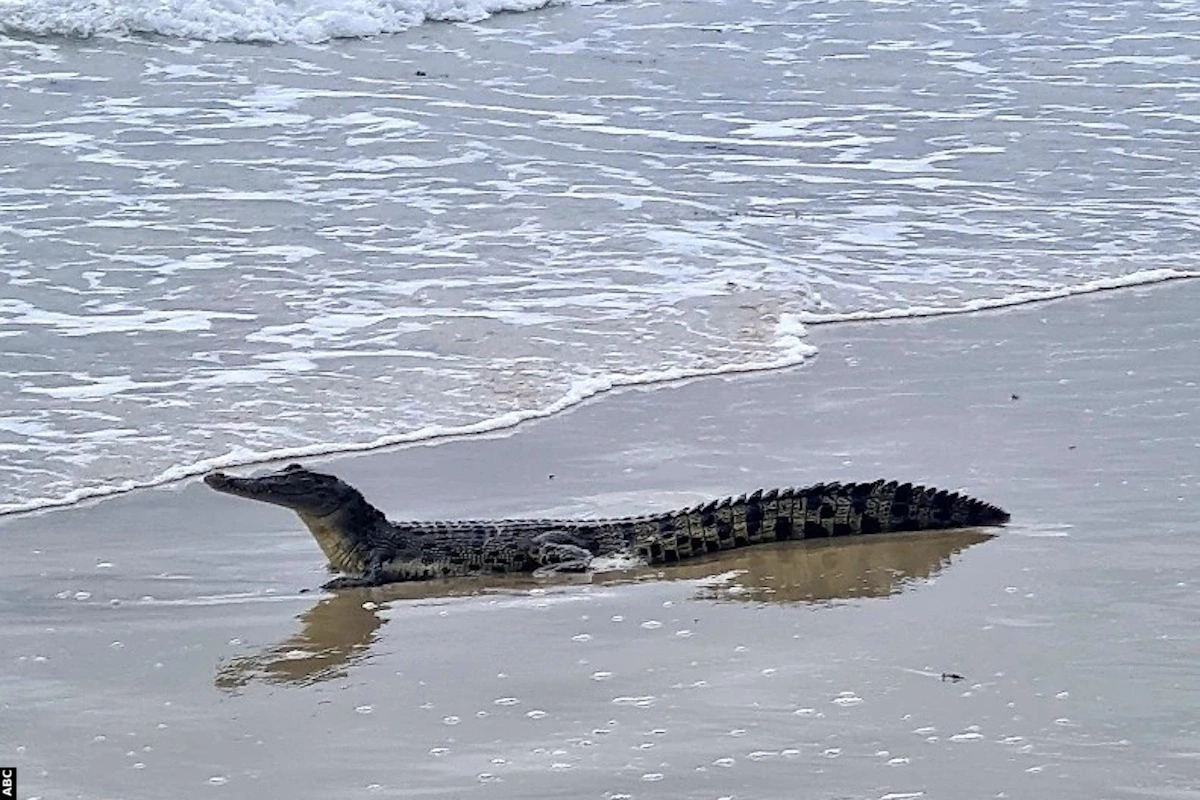A search operation is currently underway on the beautiful island of Rhodes in Greece, as multiple witnesses have reported sightings of a crocodile-like creature lurking along the banks of the Kremasti River. The mysterious animal is believed to be hiding amidst the reeds near the island’s west coast.
Christos Efstratiou, the Vice-Regional Governor of the Dodecanese, has acknowledged the complaints and revealed that there may be two such animals involved. “I have received reports of an animal with an unusual tail and a length of approximately 1.5 meters (5 feet). Based on the descriptions provided by the eyewitnesses, it is likely a crocodile,” stated Efstratiou.
Efstratiou suspects that an unscrupulous owner may have abandoned the crocodile-like creature near the river. Consequently, an extensive search of the area was ordered, but as of now, no sightings have been reported. “Until we confirm its existence, I urge everyone to exercise caution,” added Efstratiou.
However, wildlife specialists remain skeptical about the presence of a crocodile on Rhodes and instead suggest the possibility that the eyewitnesses may have encountered a monitor lizard. The head of the Greek Society of Herpetologists, in an interview with a local newspaper, mentioned that “crocodiles are not as fast as described by the witnesses.” The expert further explained that locating a monitor lizard would prove to be quite challenging.
This is not the first time in recent history that a crocodile sighting has captured attention in Greece. In 2014, a crocodile named Sifis became an overnight sensation, eluding all attempts to capture it on the island of Crete. Tourists and television crews from around the world flocked to the Greek island, hoping for a glimpse of the elusive creature, first spotted sunbathing near an artificial lake. However, Sifis was found dead in March 2015, after evading capture for eight months. Petros Liberakis, a local herpetologist who was involved in the failed operation to apprehend the crocodile, explained that the heavy winter and lack of sunlight were likely factors contributing to its demise.
Earlier this year, Greece made headlines again with the discovery of a rare white tiger cub abandoned among rubbish near Athens. The cub, named Hasija by her caretakers at the zoo, suffered from 33 broken bones and, despite weeks of veterinary care, had to be euthanized. It is believed that the tiger cub was acquired illegally by someone who decided to discard it due to its disability.











